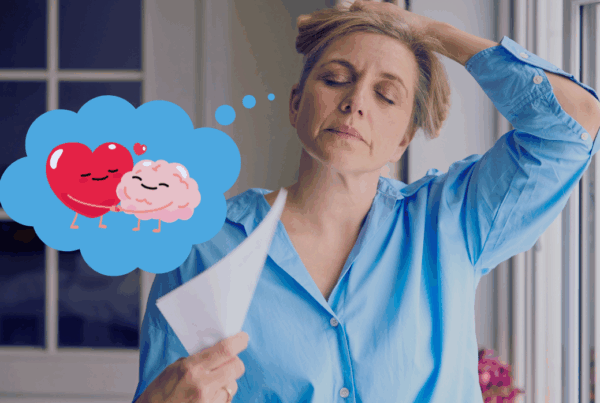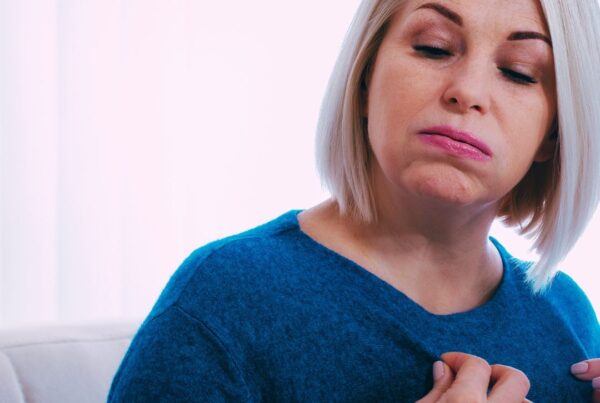Your menopause is a great time to take a good, long look at your lifestyle and make a plan to set yourself up for your healthiest future. After all, a third of your life lies ahead of you.
Optimising your lifestyle using healthy habits can make you feel more energetic and vibrant, reduce the severity and impact of some menopausal symptoms as well as protect you from the development of chronic diseases such as heart disease, diabetes, some cancers and dementia.
These habits seem obvious but don’t discount how powerful they can be. Also don’t discount also how tricky it can be to get rid of bad habits and replace them with better ones.
There are many strategies for building better lifestyle habits including:
-
making a plan
-
starting small with tiny habits
-
choose one area of your life and work on that first
-
get help from a coach or a friend to keep you accountable
-
use an app to help you with habit change.
The building blocks of a healthy lifestyle
Sleep
Getting 6 to 9 hours of good quality sleep is recommended for everyone. A good night’s sleep makes you feel more energetic the next day, improves your mood, reduces your tendency to eat poorly and can help you lose weight by modifying your stress hormones.
Tips for good sleep include having a set routine of bedtime and waking hours, keeping a dark cool bedroom that is used only for sleep and fun (of the adult type!) and avoiding caffeine, exercise and alcohol before bed. If these simple measures don’t work for you then you could try adding in night-time meditations or sleep stories; magnesium combined with glycine and taurine; ziziphus (a herbal medicine) and even melatonin (a body clock hormone) which may require a prescription.
Regular physical activity
Even small amounts of physical activity will improve your mood and energy levels and help you sleep better at night. This may be simply walking for 20 to 30 minutes outside in the fresh air. You can start smaller if you need to or ramp it up to include more vigorous huff and puff. Adding in some strength work to build muscles is very important as we age as it helps to protect bones, prevent us from falling and builds a great metabolic storage system to keep our weight down. It is not true that you need to be doing vigorous exercise to lose weight. Weight loss is usually more about the type food you eat.
Eat well
There is no perfect diet that suits everyone but there are some principles that help most people to be metabolically healthy and feel energetic.
These are some sensible recommendations for eating-
- lots of different coloured vegetables and fruits
- enough good quality protein (meat, eggs, dairy, legumes)
- less sugar – cakes, sauces, bottled foods, drinks and fruit juices
- less processed foods – flour, pasta, bread and packaged foods in general.
Specific diets can be recommended for people with certain health conditions such as diabetes. There are many strategies if you are wanting to lose weight but it is advisable to get expert advice (particularly if you have tried many times before).
Manage your stress
Sometimes this feels easier said than done however making a conscious effort to do things that lower your stress level will help you sleep better, improve your mood, reduce weight gain and make you healthier. Getting enough sleep, activity and avoiding too much caffeine, sugar and alcohol will also help. If you are experiencing severe depression or anxiety then seek professional advice.
Simple techniques to manage stress include-
- regular physical activity
- get enough sleep
- limit caffeine, sugar and alcohol
- breathing techniques
- mindfulness meditation
- yoga.
Quit smoking or drinking too much alcohol
There’s nothing surprising here and if you have tried and not succeeded before then get help. Smoking is a really hard habit to break and it might be an idea to start on an easier habit first. Drinking less has shown to improve many symptoms of menopause.
Stay socially connected
Human beings are social animals and benefit from being close to others. How much connection really depends on your individual personality but feeling socially isolated is very stressful. Try reaching out to old friends or joining a community group, perhaps one that offers the opportunity of giving back and helping others as well as yourself.
Summary
Your lifestyle choices are important for health and wellbeing both in the short term and the long term.
Some menopausal symptoms such as mood disturbances can be improved by being active every day, limiting sugar, caffeine and alcohol and practicing medication or yoga. Hot flushes can be controlled by avoiding triggers such as spicy food and hot drinks and their impact can be reduced by meditation and stress reduction (these things don’t eliminate flushes altogether, just reduce their impact).
For some women, lifestyle changes are enough to help them manage their symptoms but some women have severe symptoms which require additional medical help.






